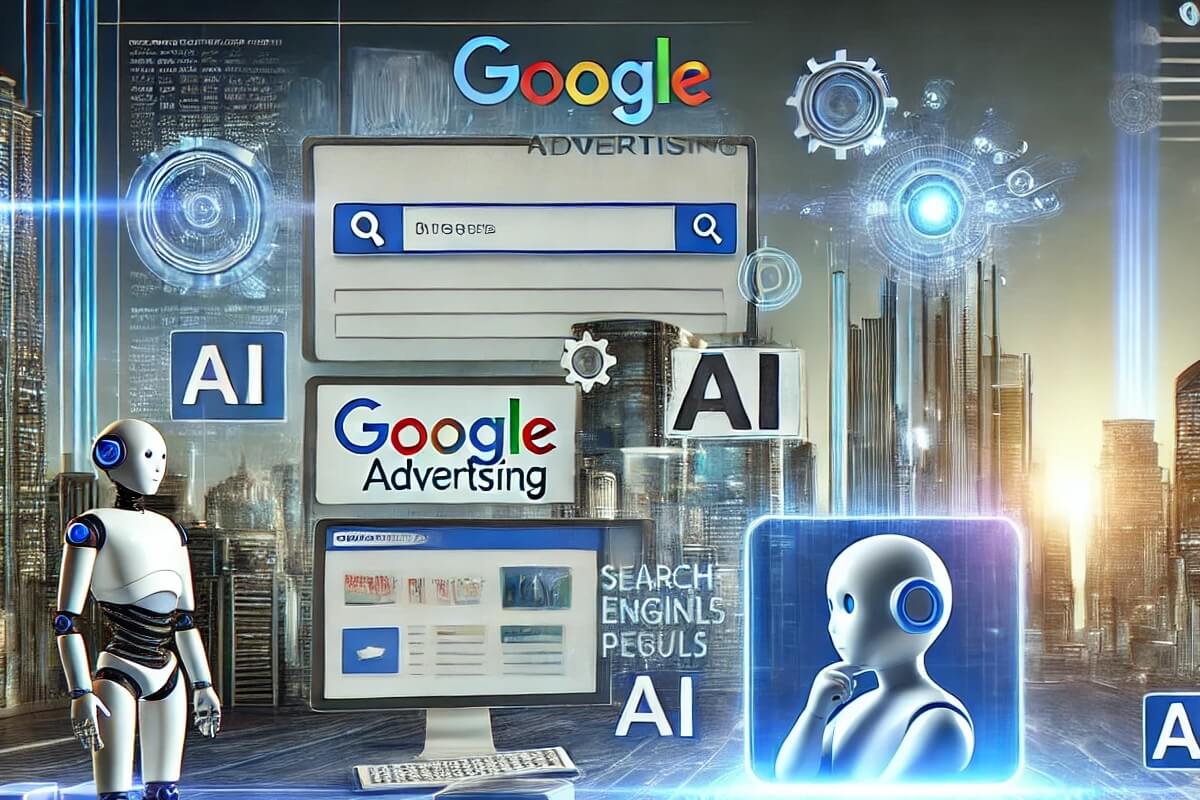The Promising Future of Google Advertising
Artificial intelligence (AI) is revolutionizing every aspect of Google, including its advertising platform, Google Ads. . As we delve into the latest AI-driven changes and their implications for pay-per-click (PPC) marketers, it’s clear that staying ahead of the curve requires adapting to new trends and technologies. In this blog post, we will explore the impact of AI on Google Ads, how it’s reshaping the landscape for advertisers, and provide six key recommendations to help you stay competitive.
The Impact of Generative AI on Search Volume and CTRs
In a recent article on Search Engine Land, Anna Crowe highlighted the profound impact of generative AI on search engine optimization (SEO). Crowe’s findings revealed that AI is significantly increasing Google search volume, but organic listings are not benefiting from this surge. According to Crowe, search volume has increased sixfold, yet AI-driven changes have led to a 60% decrease in average click-through rates (CTRs). This reduction in CTRs could result in a 30% drop in organic traffic.
One of the main reasons organic listings aren’t benefiting is the introduction of AI Overviews on search engine results pages (SERPs). These AI Overviews, currently rolled out only to U.S.-based searchers, push organic results further down the page. As a result, even top-ranking organic listings can fall below the fold, leading to decreased visibility and traffic.
The Impact of AI Overviews on Advertisers
While organic listings are feeling the pinch, the situation looks different for advertisers. Crowe reports that ad placements will start appearing above AI Overviews, occupying prime real estate at the top of SERPs. This strategic placement is no surprise, given that advertising is a significant revenue source for Google. It’s also possible that the “cards” containing organic links at the bottom of AI Overviews might eventually be replaced with ads.
These changes raise two critical questions for Google advertising professionals:
Will businesses increase their Google Ads budgets to leverage these new opportunities?
Will businesses that heavily invest in SEO shift some of their budgets to Google advertising?
The Impact of AI on CPC
Crowe speculates that the increase in ad placements (or “ad inventory”) might lead to a drop in cost-per-click (CPC). While this is a possibility, it’s not something to rely on entirely. High CPCs are a common pain point for advertisers, and perceptions of what constitutes a high CPC vary widely. Even if CPCs do decrease, it’s likely that the most noticeable drops will occur in Performance Max and Demand Gen campaigns, which already offer more ad placement options and often have lower CPCs compared to traditional search campaigns.
Are Search Keywords Getting a Second Life?
Standalone keyword targeting has seen a decline over the past few years, with many advertising professionals predicting its continued fall. However, recent developments suggest that keywords might be making a comeback for two reasons:
If organic traffic drops by 30%, as suggested, search ads can capture that lost traffic.
Google’s recent improvements to search ads query matching and brand controls signal renewed focus on search advertising.
Ginny Marvin, Ads Product Liaison at Google, recently outlined changes that include automatic inclusion of misspellings in negative keyword lists and expanded brand inclusion and exclusion options across additional campaign types. These are updates that advertisers have long desired.
Six Key Recommendations to Stay Ahead
To stay competitive in this evolving landscape, here are six recommendations:
1.Stay Current on Match Types
The “new” broad match is vastly different, using contextual signals and other data to understand intent. Familiarize yourself with these changes to optimize your campaigns.
2.Understand Google Campaign Formats
With Google’s commitment to AI, AI-driven campaigns like Performance Max are here to stay. Experiment with these formats to see how they impact your account performance.
3.Use the Best Combination of Keyword Match Types and Campaign Types
There is no one-size-fits-all approach. Test different combinations to find what works best for your specific Google Ads program.
4.Avoid Copying and Pasting Strategies
Successful strategies vary between accounts, even within the same industry. Tailor your approach to each unique campaign.
5.Invest in Original, High-Quality Content
Google faces an indexing crisis due to the exponential growth of AI-generated content. High-quality, experience-based content is more likely to be indexed and rank well.
6.Prioritize Marketing Fundamentals
Align your advertising strategies with the overall goals of your marketing team. This foundational approach remains effective, even with the introduction of AI.
Reason for Optimism
Despite AI’s impact on Google Ads, your website remains crucial. Users still need to visit your site to learn about your products or services, providing ample opportunities to engage and convert leads. Ensure your website is well-designed and contains engaging content to maximize these opportunities.
The Future of AI and Google Ads
AI is transforming Google Ads in significant ways, and this transformation is ongoing. As AI continues to evolve, so too will the strategies required to succeed. Stay adaptable, continue learning, and be prepared to reassess and refine your approach to Google Ads regularly.
By following these recommendations and staying informed about the latest developments, you can navigate the challenges and opportunities presented by AI in Google advertising, ensuring your campaigns remain effective and competitive in this dynamic landscape.
